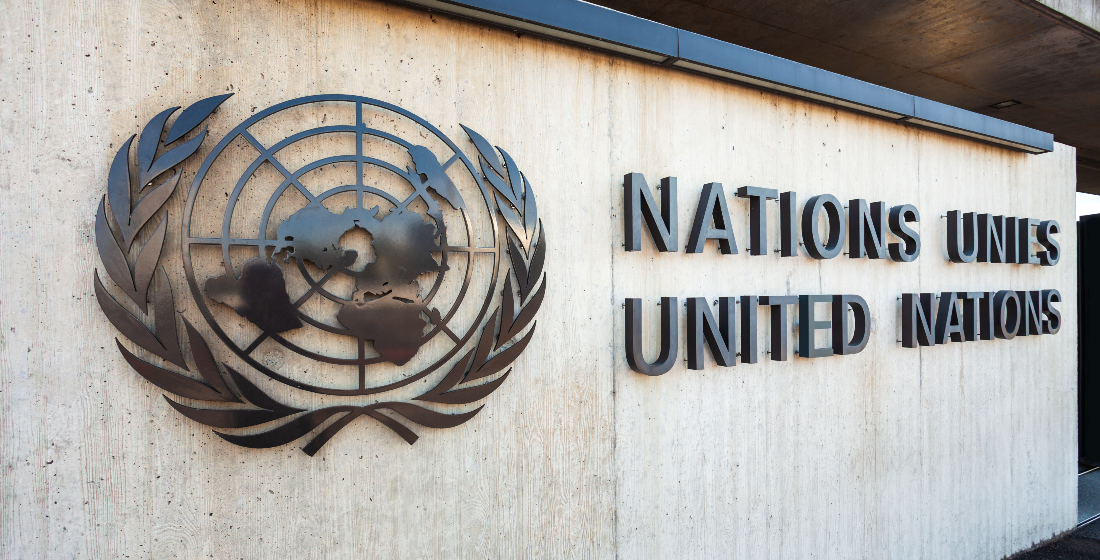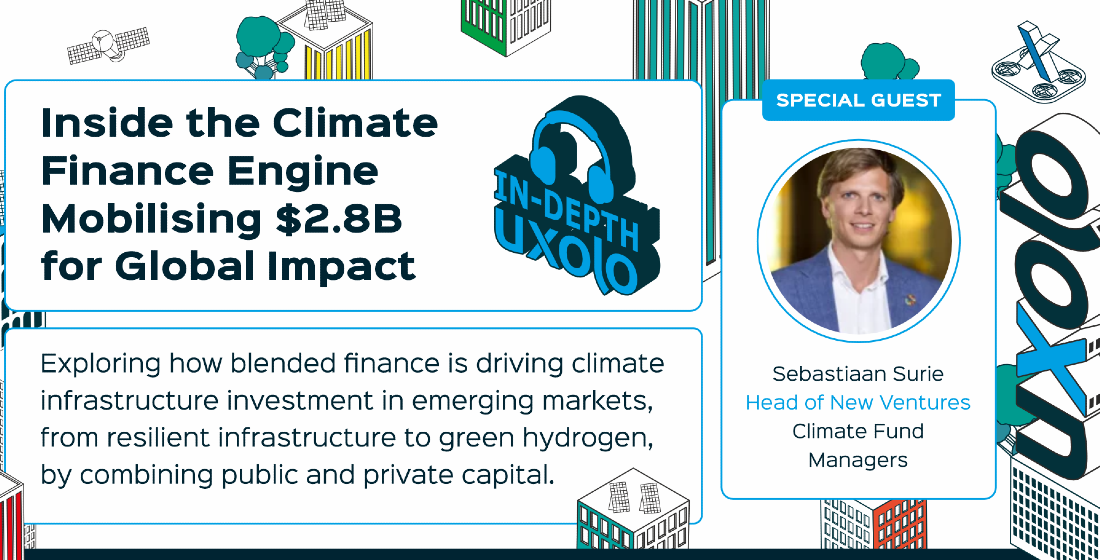UNEP FI: Need for granularity, long-term climate strategy
As the UN-led Net Zero Banking Alliance completes a year, UNEP FI Program Officer for Climate Remco Fischer speaks with Uxolo about the need for granularity in climate targets, eliminating greenwashing, and how a sudden divestment from fossil fuels will adversely impact global economy.

It’s a year since the United Nations launched the Net Zero Banking Alliance (NZBA) in April 2021 and signatories have doubled from 43 to over 100 members, representing 40 countries and over 43% of global banking assets. While some members of the NZBA have been scrutinised by NGOs for continuing to fund fossil fuels, including coal, the Alliance’s focus in the last year has been on streamlining organisational governance and establishing stringent frameworks to eliminate greenwashing.

“The biggest achievement was right at the beginning when we managed to get so many banks to agree to join NZBA and commit to our guidelines which you have to first commit to and then comply with,” says Remco Fischer, UNEP FI program officer for climate. “And that’s a really robust framework, which is ambitious and detailed in terms of timeline and tangible. It is more ambitious than what most governments are committing to.” For example, member banks are committing to decarbonise their loan books and non-overshoot of 1.5°C pathways. “I don’t know of DFIs that are being this ambitious. Obviously, you will have small businesses or certain cities with that ambition. But at the level of countries or companies that have such exposures to the global economy, I think it's unparalleled. To get such a big chunk of the global banking industry to commit right at the beginning to this – that was a major coup.”
Although ambitious commitments and pledges are made by the banking sector, including at COP26, Fischer believes that the challenge lies in compliance, “because the commitments are nothing more than promises,” he says. In order to operationalise the initial guidelines, there is a need to add granularity to the frameworks. “We need to add sectoral granularity. We do add granularity when it comes to certain methodologies with certain question like the role of using offsets. So, these efforts to add granularity to those commitments is happening at the moment,” adds Fischer.
Finding the details
In its second year, NZBA will focus on its approach to offsets and the role of offsets in decarbonisation of the member banks’ clients. The alliance is also working on sector-specific guidance. “We are thinking about what does Net-Zero non-overshoot 1.5 look like for real estate? What does that look like for oil and gas industry? What do these sector-specific targets look like for the banks?” says Fischer. The Alliance will also seek to broaden target setting requirements to include facilitated capital markets activities during the next revision of the Guidelines by April 2024, for inclusion in 2030 intermediate targets.
Adding granularity to the overarching frameworks is paramount to achieve compliance of the commitments. For example, the NZBA guidelines factor in the scope 1, 2 and 3 categories classified by the international accounting tool, Greenhouse Gas Protocol. Scope 1 covers direct emissions from owned or controlled sources. Scope 2 covers indirect emissions from the generation of purchased electricity, steam, heating and cooling consumed by the reporting company. Scope 3 includes all other indirect emissions that occur in a company’s value chain. “This categorisation is really important because you have, at times, an oil and gas company that pledges to go Net Zero but only on scope 1. So, all of the oil and gas that they sell off, which would be combusted elsewhere, that they don’t count. That’s why in our guidelines we include the scopes for specific sectors. Certain scopes will be more or less relevant depending on the industry being analysed. Scope 3 is especially important for oil and gas. For power generation, we actually don't need scope 3 because for power generation the main one is Scope 1. The focus for automotive industry is scope 3 more than 1 or 2. So this past year, some banks have submitted their targets to the Alliance, which are promising. I’m not saying they are perfect but they are in the spirit of what was intended.” says Fischer.
Eliminating greenwashing
The guideline is formulated to make it difficult for members to engage in greenwashing. The targets are made explicit and measurable through sector-specific metrics. “We now have 100 members so obviously we are very likely to face situations where members are not complying to the guidelines. In those instances, there's a so-called comply or explain mechanism,” informs Fischer. “They may have good reasons for why they can't do certain things. They need to provide explanation for that, otherwise, the expectation is that it is sheer non-compliance.”
Banks are required to publish annual reporting on their progress towards targets and the full emissions profile of their financing, including absolute footprints, sector-specific carbon intensities, etc. For those banks who are also members of the Principles for Responsible Banking, third-party limited assurance of their reporting must be obtained within four years of signing the Principles.
In the case of non-compliance, there's an accountability mechanism, whereby the UN Secretariat engages in a six-month period of remediation with the bank. This permits an explanation of how the bank has applied the guidelines to its own business model and balance sheet, and design choices around methodologies and data. Without a remedy, the case is elevated to the Alliance governance and the Alliance Steering Group, and the final measure is de-listing the bank from NZBA. The Steering Group mostly comprises banks from different regions and the UN Special Envoy on Climate Action and Finance, which currently is Mark Carney. “Besides the banks, the UN seat is there to ensure that the alliance remains fully credible and accountable,” says Fischer. “That’s very deliberate, so the reputation of the Alliance and by extension, the reputation of the UN is at stake.”
The first year of NZBA has not been without criticism. London-based non-profit ShareAction conducted a study pointing out that 24 NZBA member banks provided $33 billion to oil and gas expanders since joining the alliance last year, with over half of that amount ($19 billion) coming from four of the founding members – HSBC, Barclays, BNP Paribas and Deutsche Bank.
German advocacy group Urgewald published that between January 2019 and November 2021, 376 commercial banks provided $363 billion in loans to the coal industry. Ten of the top 12 lenders to the coal industry are members of the NZBA, including three Japanese banks Mizuho Financial, Mitsubishi UFJ Financial and SMBC Group, Barclays from the UK, and Citigroup from the US.
“The alliance has big global banks and not small niche green banks,” says Fischer. “They have been funding the global economy for decades, which unfortunately is still very fossil fuel heavy. So, I’m not surprised that they are still funding fossil fuels. It would be detrimental to economic stability and human well-being and welfare if fossil fuel funding stopped overnight. The supply of fossil fuels must go down in tandem with the demand. If you cut supply and there still is demand, then it would increase the prices of fossil fuels and make it even harder for fossil fuel companies to stop. It would also create economic havoc and people will have to pay a lot more for energy. So, it's about a gradual, consistent, determined, and science-based downward trajectory, which has to involve the supply side of fossil fuels and the demand side.”
The Alliance encourages members to conduct client engagement and education as the primary tool for engendering real-economy impact. This is partly accomplished via target-setting. For members who joined the Alliance in April 2021, their first set of intermediate 2030 targets are due to be reported in October of 2022 (18 months after joining) and will prioritise those sectors that represent the banks’ largest GHG emissions and/or intensities in their portfolio. “Given the importance and the complexity of decarbonizing the oil and gas sector and the tremendous amount of work required in doing so, it is reasonable to expect that many banks will set targets for this sector at the earliest possible opportunity,” says Fischer.
To achieve these targets, banks will then need to engage with clients, shareholders, and with their own firms to educate, share priorities, gain alignment and assess operations. Additionally, while portfolio targets will provide concrete metrics for banks to aim for, banks will ideally supplement targets with sector policies that broadly support clients’ transition. “If you look at the priority sectors of the NZBA, you will see supply sectors of fossil fuels like coal mining, oil and gas companies, but also a whole lot of all of the demand sectors like power generation, transport including automotive, shipping, planes, and real estate, among other sectors,” says Fischer. “If there are banks that continue to finance industries in ways that will make it difficult for them to meet their targets, while not providing robust explanations as to why that is, they will have to leave the alliance as a measure of last resort.”
The accompanying challenge of phasing out fossil fuels is that the science, including the Intergovernmental Panel on Climate Change reports, are not granular enough for financial institutions to operationalise those goals, according to Fischer. “At the moment, I see that stakeholders are using sound bites out of context. But the solution is not just one model but a compilation of models, and we require more consolidation of science and make it more granular and conclusive, that’s the key challenge financial institutions face as they make decisions regarding climate change.”





